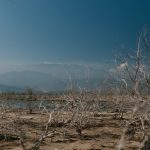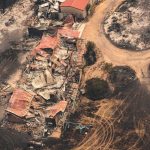 December 14, 2020 11:01 am
Published by Climate Extremes
December 14, 2020 11:01 am
Published by Climate Extremes
A major component of the research in the Drought program over the past four months has focused on the interface between real-world data and climate models. The aim of much of this research has been to improve how land surface models represent some of the key processes that influence the length, and severity of drought.
 December 12, 2020 6:40 pm
Published by Climate Extremes
December 12, 2020 6:40 pm
Published by Climate Extremes
In September 2020, IAG and NCAR released a report Severe Weather in a Changing Climate (second edition), which incorporated research findings from numerous CLEX researchers. CLEX feedback also led to the incorporation of a new section on connected extremes in this report, highlighting the value of research into weather extremes.
 December 12, 2020 6:07 pm
Published by Climate Extremes
December 12, 2020 6:07 pm
Published by Climate Extremes
With the drama and instability of 2020, many of our ECRs have faced unprecedented challenges including loneliness, homesickness and the mounting uncertainties for their future careers. That latter concern may be why the majority of ECRs wanted this year's virtual ECR workshop to focus on the Future in academia and planning your research career.
 December 12, 2020 5:11 pm
Published by Climate Extremes
December 12, 2020 5:11 pm
Published by Climate Extremes
It has been remarkable how much we have achieved in this extraordinarily difficult year. Research coming out of the Teleconnections and Variability program over the past four months has strongly focused on how influences in one part of the world can have direct impacts on another.
 December 12, 2020 4:43 pm
Published by Climate Extremes
December 12, 2020 4:43 pm
Published by Climate Extremes
The past four months have seen the Heatwaves and Cold Air Outbreaks research program focus very much on improving our capacity to understand and help others in research and industry get an insight into the impact of extreme heat events.
 December 12, 2020 4:03 pm
Published by Climate Extremes
December 12, 2020 4:03 pm
Published by Climate Extremes
Two new ACCESS models have been released (ACCESS-CM2, ACCESS-ESM1.5), the Aus400 dataset has been published, the ERA5 collection is being transferred to NCI and there is now a new quick process to book meetings with our CMS team.
 December 12, 2020 3:29 pm
Published by Climate Extremes
December 12, 2020 3:29 pm
Published by Climate Extremes
The challenges of 2020 have impacted our briefing notes but we combined forces with NESP ESCC to produce an impressive overview of climate sensitivity. Our mid-term review has invigorated the team and a science-teacher workshop is well underway for AMOS.
 December 11, 2020 4:15 pm
Published by Climate Extremes
December 11, 2020 4:15 pm
Published by Climate Extremes
It has been an unprecedented year in academia in 2020, a year where many people have been doing it tough in particular those of you in Victoria. The impact of COVID will take a long time to be fully realized of course, with impacts on our students, researchers, administration and technical teams that we could not anticipate.
 November 27, 2020 3:25 pm
Published by Climate Extremes
November 27, 2020 3:25 pm
Published by Climate Extremes
Using atmospheric model experiments, researchers have shown that the warming of the tropical Indian Ocean relative to the other two tropical ocean basins can effectively control Walker Circulation changes in the Pacific and Atlantic oceans and influence climate far beyond the Indian Ocean region.
 November 27, 2020 9:34 am
Published by Climate Extremes
November 27, 2020 9:34 am
Published by Climate Extremes
This paper details a new approach to evaluating the performance of land surface models, the component of climate and weather models that simulates land surface processes. It focuses on the cycle of solar radiation during daylight hours and how the energy from the sun is exchanged between the land surface and lower atmosphere.









